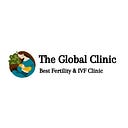IVF Pregnancy and Normal Pregnancy
Patients may question what to expect from an IVF pregnancy after a successful round of IVF. The process of establishing pregnancy through assisted reproductive technology (ART) might appear to be very different from “natural” conception, and some women are concerned that this difference will remain throughout the pregnancy.
For the vast majority of women, the answer is no: beyond the first few weeks, an IVF pregnancy is identical to a “normal” pregnancy in every way, at least in the sense that two pregnancies can be compared. According to the best fertility & IVF specialists in Greater Noida, no matter how the kid is conceived, every woman and every pregnancy is unique. Let’s take a look at how a “typical” IVF pregnancy progresses with that in mind.
The first two weeks
The largest difference between a “normal” pregnancy and an IVF pregnancy in the early days and weeks after embryo transfer is the amount of awareness. The majority of women who fall pregnant on their own don’t realize they’re expecting until a month or more into their pregnancy. That awareness begins for an IVF patient the minute the embryo is transferred. In practice, this might mean you’re coping with more worry and sensitivity to early pregnancy symptoms than most women do at this point.
Premenstrual symptoms or early pregnancy
The fact that the fertility medicines you took during the ovarian stimulation phase of IVF might mimic the signs of early pregnancy further complicates matters. Even worse, a variety of premenstrual symptoms might have the same effect. It makes the dreaded “two-week wait” between transfer and your formal pregnancy test even more challenging.
You may be fatigued, bloated, queasy, and cranky without knowing whether or not you are pregnant. It’s possible that you’ll skip your period or that you’ll have one last light period or spotting. When the embryo implants in the uterus, there may be some discomfort and minor bleeding.
Breast changes (such as heaviness and pain) are typical in early pregnancies, but no one symptom can provide you with a solution.
Home pregnancy tests are inaccurate at this point because your body may still have heightened hormone levels as a result of reproductive medicines. The only way to know for sure whether you’re pregnant is to take an official pregnancy test at the clinic.
Symptoms of ovarian hyperstimulation syndrome
One thing to keep in mind at this stage is that the symptoms of ovarian hyperstimulation syndrome (OHSS) can be mistaken for early pregnancy symptoms, so if you have severe cramps, bloating, or nausea, you should contact your doctor right away rather than believing it’s a normal part of pregnancy. Because OHSS can be a side effect of IVF and can harm pregnant women, it’s critical to get medical help as soon as possible if you suspect OHSS.
The majority of instances are minor and resolved within a few weeks, although unusual problems might occur. If you have OHSS and are pregnant, your symptoms may linger for two to four weeks following a positive pregnancy test.
Your doctor will keep a close eye on you during this time to help you manage your symptoms, but there are no known long-term hazards to your baby from OHSS.
Take care of your body as well as your intellect.
For most IVF patients, constantly reviewing and guessing at symptoms is unpleasant, but it’s tough to avoid. At this time, it’s a good idea to prioritize self-care. Give yourself a break and treat yourself with kindness, both physically and emotionally. Check to see whether you’re getting enough sleep and eating well. Avoid high-intensity exercise: low-impact activities like mild walks might help you cope with stress, but anything more difficult should be avoided.
Whether it’s your spouse, a close friend or family member, a professional counsellor, or a combination of the aforementioned, reach out to your trusted support network. Don’t be afraid to approach your fertility team if you have any particular medical questions or concerns. They’ve been through it before and may be able to assist you in finding some relief.
If you want to know more or seeking, Infertility specialist in Delhi NCR Contact Dr. Ramya Mishra Shukla.
